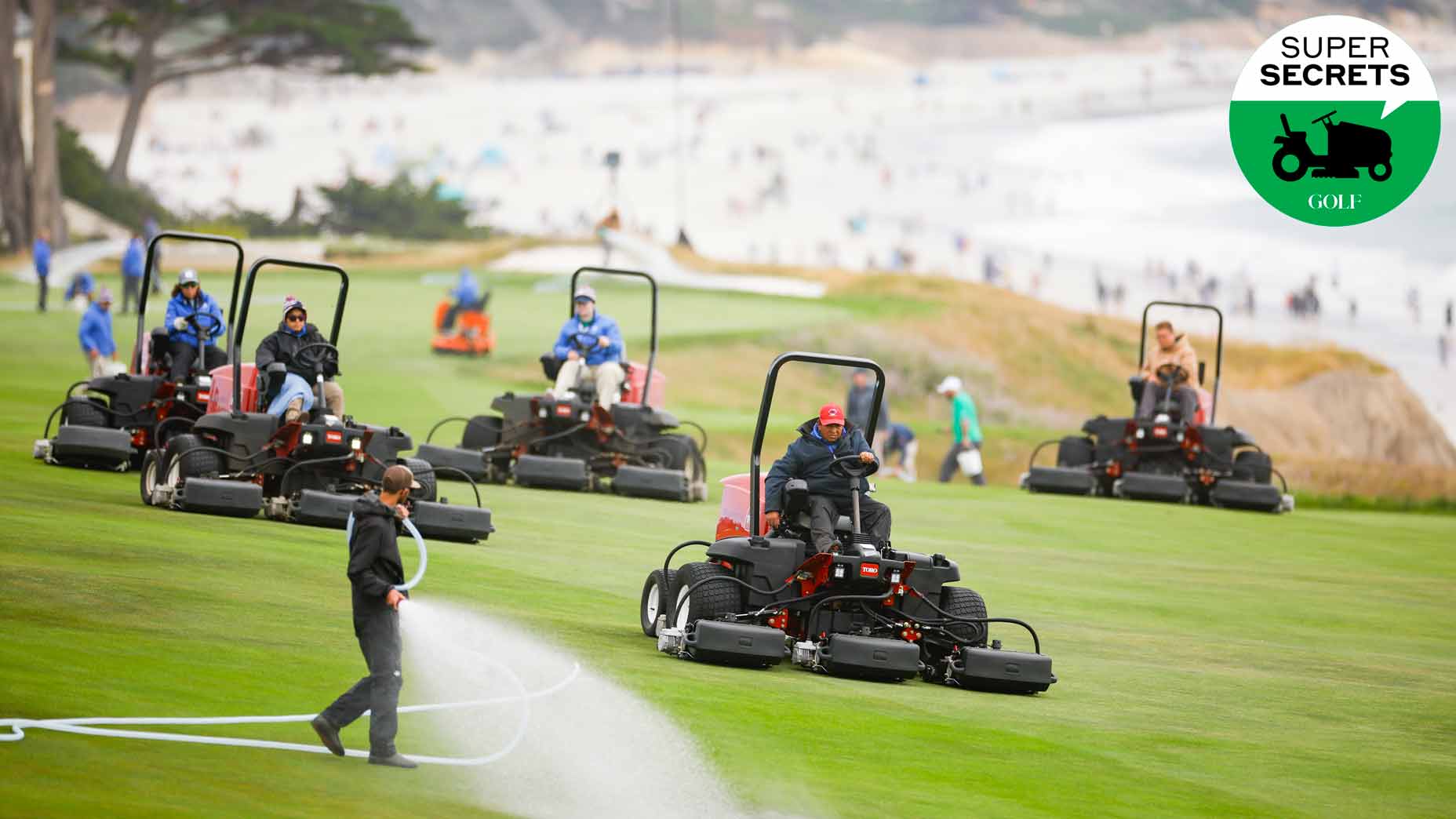She touched down in California on Sunday afternoon and beelined to Monterey, bypassing her hotel so she could catch the course at sunset, her first-ever look at Pebble Beach, in golden light.
“It was so beautiful, I almost cried,” Andi Meadows said.
But enough with the emotions. It was also her first major. She had work to do.
The next day, she hit the range, squeezing in some reps at an obscenely early hour, before touring the front nine, mostly getting acquainted with the greens. She made no pitch marks. But she repaired some. She helped with the mowing, too.
As the U.S. Women’s Open plays out at Pebble Beach this week, the 2023 Women in Turf program is unfolding alongside it, dispatching Meadows and 34 of her female colleagues from around the country as volunteer assistants to Pebble’s 27-member maintenance crew: seven days of crucial dawn-to-dusk contributions, and a show of force from an underrepresented group in the turf-grass trade.
Of the 19,000-plus members of the Golf Course Superintendents Association of America, less than two percent are women. Why the wild imbalance? The explanations are at once complex and simple, ranging from the long hours to antiquated notions about gender roles. Some of it comes down to awareness. Many women don’t pursue turf-care as a profession for the same reason many men don’t: they don’t realize it’s an option.
It took Andi Meadows some time to see the light. Born and raised in Mississippi, she was athletic and outdoorsy. She also loved working with her hands. In 2006, in the trying aftermath of Hurricane Katrina, Meadows, then in early 20s, landed a golf-course maintenance job through a family friend. She figured it was grunt work, but she needed the money.
“Soon enough, I found out it was much more than a paycheck,” she says.
Along with covering her rent, the job offered an education. There was always more to learn. Keen to rise through the ranks, Meadows enrolled in a community college, taking classes on the side to complete a degree in horticulture. By then she was married, a military spouse, with three young children, moving around from base to base. Her career aspirations took a backseat to family, but they never left her thoughts. In 2021, divorced now, her ex-husband stationed in Germany, Meadows saw a listing for an assistant’s job at TPC San Antonio. She moved to Texas, knowing no one. “No friends, no family, no house, car,” she says. “Just me, three kids, a dog and 250 pounds of luggage.”
The job was a salvation. She hasn’t looked back.
If there’s a downside to her role, it’s what she describes as “the sense of isolation” — being a woman in a male-dominated trade who also happens to be managing men. She has to keep her boundaries.
But over the years, she has made connections with female colleagues through Facebook support groups. This week, she has met some of them in person for the first time.
The Women in Turf program started in 2021, at the U.S. Women’s Open at the Olympic Club. If the world’s best female players got to ply their trade on some of the world’s best courses, why shouldn’t the best women in turf grass get to do the same?
Getting behind the program was a no-brainer, says Pebble superintendent Bubba Wright.
“It’s a great opportunity for education and career development, and it’s also a great value for us,” he says. “These women are going to be doing a lot of everything to help us get the course ready. They’ll be involved in the whole shebang.”
And so it has been for Meadows and her peers since Monday morning: shuttled to the course at 3 a.m., logging shifts til 8 a.m., with a break when play begins, and then back at in the afternoon and working on til darkness. Raking bunkers, filling divots, repairing pitch marks. No end to the details, or the gratification.
On Thursday afternoon, as the opening round wound down, Meadows stood outside a maintenance shed, alongside the 10th hole, a cluster of her colleagues crashed out on the ground behind her, sneaking in naps before the work resumed.
After the last groups finished, Meadows would be back out on the greens, moving mowing boards, wooden platforms laid down as protection so mowers can turn without damaging the turf. Then she would get busy snipping the rough around sprinkler heads with scissors.
She was exhausted and exhilarated.
“It’s been magical,” she said. “And besides, I can sleep next week.”
